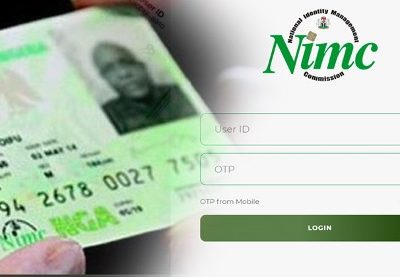The Federal Executive Council (FEC) has approved the National Policy on the Nigerian government second-level domains and ordered all federal public institutions to obtain a Nigerian government second-level domain.
RELATED .Ng Domain Registrations To Reach 1 Million By 2023, Says NiRA
The country’s highest decision-making body gave the approval during its meeting on the 16th of February, 2022 based on the presentation of a memo by Minister of Communications and Digital Economy, Professor Isa Ali Ibrahim Pantami.
By law, all federal public institutions are to obtain a Nigerian government second-level domain from the National Information Technology Development Agency (NITDA), and “migrate to that platform with immediate effect. As part of the implementation of the National Digital Economy Policy and Strategy (NDEPS),” notes Technical Assistant (Research & Development) to Minister of Communications and Digital Economy, Dr Femi Adeluyi in a statement issued in Abuja.
Adding: “The scope covers the Nigerian government second-level domain and email services on .gov.ng, .mil.ng, .edu.ng, .sch.ng, and any other Nigerian government owned second-level domains that could be approved in the future.”
The full statement reads:
The policy was developed to strengthen public confidence in the use of digital technologies and participation in the digital economy. The policy is also in line with the implementation of the Nigerian e-Government Master Plan, approved by the FEC in August 2018.
The master plan has a vision to create a world class open and digitalized government that connects with people to drive efficiency in public administration, responsiveness of civil services and transparency in governance leading to improvement of the quality of life of Nigerians.
The increasing rate of cyber-related incidences has inspired countries to develop policy instruments to effectively regulate and manage their use of information and communication technologies in government institutions, specifically electronic correspondences within the government. Several countries have put policies in place to ensure that official correspondences are only conducted using approved domains and platforms in government institutions. The use of generic domains and private emails for government businesses and correspondences impedes the identity, security and global recognition of the Nigerian government on the Internet.
Furthermore, the use of private emails for Government business is a major limitation to the capabilities to archive and back-up sensitive Government data thereby making it difficult to preserve historical correspondences and documents hosted on non-Government servers. Similarly, government documents that should be deleted or destroyed after a period of retention are permanently hosted on unsecure servers.
The policy will be implemented by the National Information Technology Development Agency (NITDA), under the supervision of the Federal Ministry of Communications and Digital Economy. It seeks to promote transparency in governance; protecting the Nigerian cyberspace; and promotion of the Digital Nigeria agenda. It also seeks to accelerate the adoption of the second level domain (.gov.ng, .edu.ng, .mil.ng) under the country code Top Level Domain (ccTLD.ng) with the main objective to eliminate the use of top-level domains for government business and the use of private emails for official correspondences by the end of year 2022.
The policy gives direction for the enforcement of the mandatory use of the Nigerian government second-level domains by all federal public institutions, and recommends its adoption by states and local governments. The scope covers the Nigerian government second-level domain and email services on .gov.ng, .mil.ng, .edu.ng, .sch.ng, and any other Nigerian government owned second-level domains that could be approved in the future.
As part of the implementation of this policy, federal public institutions are to obtain a Nigerian government second-level domain from NITDA and migrate to that platform with immediate effect. As part of the implementation of the National Digital Economy Policy and Strategy (NDEPS), the ministry will continue to position Nigeria to leverage technology in order to transform Nigeria into a sustainable and secure digital economy.































